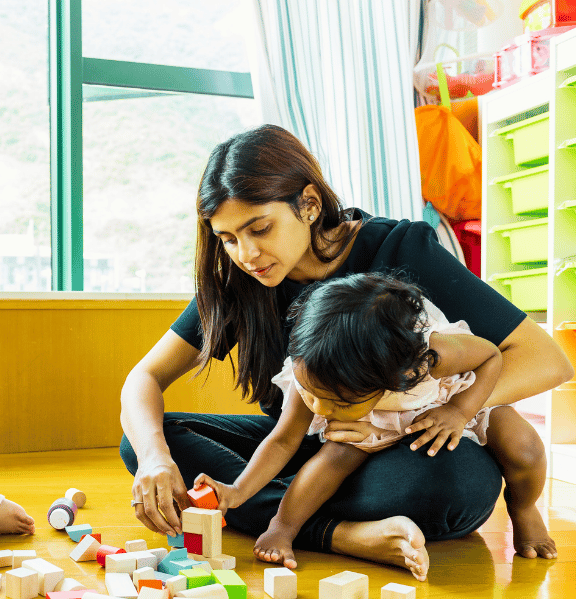₹ 0.00
-
By: emimo
-
February 3, 2024
Components of Reproductive Health for a Fulfilling Life
Introduction:
Greetings, dear Emimo Family members! Today, we embark on a deep dive into the intricate tapestry of reproductive health, exploring its multifaceted components that extend far beyond the physical realm. Join us on this journey as we unravel the interconnected threads of physical, mental, and social well-being, weaving together a comprehensive understanding of what it truly means to thrive in the realm of reproductive health.
Understanding Reproductive Health: A Holistic Approach
Reproductive health is often framed solely within the context of physical well-being, focusing on the absence of disease and the functionality of the reproductive system. However, to truly grasp the essence of reproductive health, we must adopt a holistic approach that encompasses the interconnected aspects of physical, mental, and social well-being. Let’s delve into each of these components, exploring how they intertwine to shape the narrative of a fulfilling life.
Physical Well-being: The Foundation of Reproductive Health
At its core, physical well-being forms the foundation of reproductive health. This encompasses the proper functioning of the reproductive organs, regular menstrual cycles, and the ability to conceive and carry a pregnancy to term. However, it extends beyond the biological aspects to include access to healthcare and contraception.
In the pursuit of physical well-being, regular check-ups and screenings play a pivotal role. From cervical and breast cancer screenings to STI tests, proactive healthcare ensures early detection and intervention, contributing to the overall health of the reproductive system.
Mental Well-being: Nurturing the Mind-Body Connection
The intricate dance between the mind and body is a defining aspect of reproductive health. Mental well-being involves the emotional and psychological aspects that influence our reproductive choices, experiences, and overall satisfaction with life. Stress, anxiety, and depression can impact reproductive health, affecting fertility, sexual satisfaction, and overall quality of life.
Promoting mental well-being in the realm of reproductive health involves destigmatizing mental health discussions, fostering open communication, and providing support for individuals navigating the complexities of family planning, pregnancy, and parenthood. The mind-body connection is a powerful force, and understanding its influence is key to achieving holistic reproductive health.
Social Well-being: Building Healthy Relationships and Communities
Reproductive health is inseparable from social well-being, as it is intricately woven into the fabric of our relationships, communities, and societal norms. Social well-being encompasses the quality of our relationships, the support systems available, and the cultural context in which reproductive choices are made.
Fostering social well-being involves creating environments that empower individuals to make informed decisions about their reproductive lives without fear of judgment or discrimination. It involves promoting gender equality, ensuring access to education, and dismantling societal barriers that may hinder reproductive autonomy.
The Interconnectedness of the Components
Understanding the interconnectedness of physical, mental, and social well-being is crucial for navigating the complexities of reproductive health. For instance, mental well-being influences sexual satisfaction, which, in turn, impacts the overall quality of relationships. Likewise, societal norms and cultural attitudes can either support or impede access to essential reproductive health services.
Addressing the Stigma: The Importance of Comprehensive Sexual Education
One key component that bridges the physical, mental, and social aspects of reproductive health is comprehensive sexual education. By providing accurate and age-appropriate information, we empower individuals to make informed decisions about their bodies, relationships, and sexual health. This education not only dispels myths and misconceptions but also plays a pivotal role in breaking down the stigma surrounding reproductive health discussions.
Championing Physical Well-being: Access to Quality Healthcare
The cornerstone of physical well-being in reproductive health is access to quality healthcare. Regular check-ups, screenings, and timely interventions contribute to the prevention and early detection of reproductive health issues. By championing universal access to healthcare, we create a foundation for individuals to proactively manage their reproductive well-being.
Empowering Mental Well-being: Destigmatizing Mental Health in Reproductive Health Conversations
Destigmatizing mental health in the context of reproductive health is a collective responsibility. Creating spaces for open and judgment-free discussions, integrating mental health support into reproductive care, and raising awareness about the psychological aspects of reproductive choices are essential steps toward empowering mental well-being.
Building Social Well-being: Navigating Relationships and Societal Expectations
Navigating the social landscape of reproductive health involves addressing relationship dynamics and societal expectations. This includes promoting healthy communication within partnerships, addressing power imbalances, and challenging cultural norms that may perpetuate inequality. By fostering a supportive and inclusive environment, we contribute to the social well-being of individuals and communities.
Navigating Reproductive Choices: The Role of Family Planning
Family planning emerges as a central theme when considering the components of reproductive health. It involves making intentional decisions about the timing, spacing, and number of children. Family planning is not solely a physical act but a holistic approach that considers mental and social well-being. It is about empowerment, choice, and the freedom to make decisions that align with individual values and aspirations.
The Intersectionality of Reproductive Health: A Gendered Perspective
An essential aspect of understanding reproductive health is recognizing its intersectionality, particularly through a gendered lens. The unique health needs and challenges faced by different genders underscore the importance of tailoring reproductive health initiatives to be inclusive and sensitive to diverse experiences. From maternal health to LGBTQ+ reproductive rights, acknowledging intersectionality is key to creating comprehensive and equitable reproductive health solutions.
Policy and Advocacy: Shaping the Landscape of Reproductive Health
The components of reproductive health are not only individual but also societal responsibilities. Advocacy for policies that prioritize reproductive health, ensure access to comprehensive sexual education, and support mental health initiatives is crucial. By actively engaging in advocacy, we contribute to creating an environment that fosters the well-being of all individuals.
Empowering Voices: Personal Stories of Reproductive Health Journeys
Real stories hold immense power in dismantling stereotypes and fostering empathy. Throughout our exploration of the components of reproductive health, we’ll encounter personal narratives from individuals who have navigated the complexities of physical, mental, and social well-being. These stories serve as a testament to the diversity of experiences and the resilience of those on reproductive health journeys.
Elevating the Conversation: The Role of Digital Platforms in Reproductive Health
In the digital age, online platforms play a crucial role in disseminating information, providing support, and fostering community. Digital platforms, such as blogs, forums, and reputable websites, serve as valuable resources for individuals seeking information on reproductive health. The role of technology in breaking down barriers, providing accurate information, and connecting individuals with supportive communities is pivotal in advancing reproductive health initiatives.
Closing Thoughts: A Call to Holistic Reproductive Health
As we conclude our exploration of the components of reproductive health, let us reflect on the interconnectedness of physical, mental, and social well-being. Reproductive health is not a one-size-fits-all concept; it is a dynamic and evolving landscape that requires collective efforts to address the diverse needs of individuals and communities.
By championing comprehensive sexual education, prioritizing mental health in reproductive care, and advocating for policies that promote inclusivity, we contribute to a world where everyone has the opportunity to thrive in their reproductive well-being. Let us continue to elevate the conversation, break down barriers, and pave the way for a future where reproductive health is synonymous with holistic well-being. Together, we navigate the components of reproductive health, fostering a landscape where individuals are empowered to embrace their reproductive journeys with dignity, knowledge, and support.
Categories
Recent Posts
October 27, 2022
Ut wisi enim ad minim veniam quisment
March 17, 2023
Hac hendrerit mus nons semper suspendisse
March 17, 2023
Tellus pharetra lacus ligula fusce cum eu potenti
May 9, 2023
A Deep Dive into Reproductive Health
Tags
3rd Trimester
Acupuncture
Alternatives
baby's position in the womb
baby care
Baby names
Basic Guide for parents
Clinical
Comprehensive Guide
count kicks
cute
depth
Feeding the baby
Fetal hiccups
fetal movements
getting pregnant
having kids
Health
Healthy baby
holistic health
hormonal balance
How to
jaundice
lifestyle modifications
love
natural remedies
newborn
New updates
Nutrients
Pills
Positions
pregnancy
relationship
reproductive health
Romance with partner
secrets of relationship
sex positions
sexual wellness
Shortage
stress management
Tampons
Treatment
understanding
Vitamin
women's health





























Leave a comment